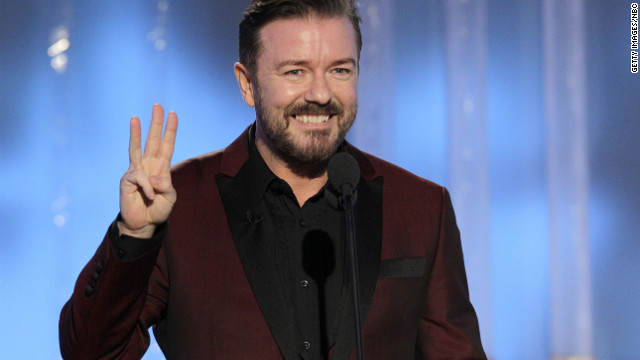
- People are seeking out increasingly personalized entertainment options
- With Twitter, TV has ceased to be a passive medium, Pete Cashmore says
- Breaking news and live events create an interactivity with global audiences
- Cashmore: Because of Twitter, some people who ditched TV are coming back
Editor's note: Pete Cashmore is founder and CEO of Mashable, a popular blog about tech news and digital culture. He writes regular columns about social media and tech for CNN.com.
(CNN) -- I watched the Golden Globes on Sunday night. Live. On TV.
That might sound unremarkable except that I can't remember the last time I intentionally watched a scheduled show that wasn't on-demand, at a time of my choosing. I'm part of the generation the TV networks have nightmares about: the generation that's quite content watching all its media online.
This is the way we were told it would unfold: As more options for content consumption evolved, people would start curating their own channels. With YouTube, Netflix, Hulu and hundreds of other programming options, blockbuster movies and "must-see TV" would give way to thousands of niche channels online.
People would seek out increasingly personalized entertainment options, we were informed, from the personalized playlists I have on Pandora and Spotify to the tech-centric podcasts on my phone that cater to audiences in the low thousands.

Mass media would be eroded by millions of niches, the prophesy read, and big audiences would dissipate.
And yet something curious is happening. Increasingly, as topics begin to bubble up on social networks such as Twitter, television has ceased to be a passive medium. With live commentary from our online contacts, people such as me are increasingly seeking to be part of these mass movements.
We're wiping the dust off the TV -- as I did with the Golden Globes -- and looking to be part of this global social event. I didn't plan to watch the Globes, but as Twitter and Facebook lit up with buzz, I couldn't help but be drawn in.
Is my anecdotal experience part of a wider trend? It seems possible. MTV's Video Music Awards broke records last year, seemingly aided by social media. The Golden Globes also saw a ratings spike in 2011. The 2011 Grammys, meanwhile, saw their best Nielsen ratings in a decade.
And yet one data point doesn't fit the pattern: The 2011 Oscars saw a modest drop in ratings, with some pundits blaming the choice of hosts. Is it the case that social media can't make up for a dull awards show? Or perhaps 2011 was an anomaly?
We'll have to wait and see, but last year's ratings across all awards shows would suggest that the downward spiral we might have predicted has yet to materialize.
I see Twitter breaking my habits for other content types, too: Breaking news events such as last year's devastating tsunami had me turning on the nearest TV set. Not because the news wasn't accessible online -- it was -- but rather because at times like these we seek out real-time information and a sense of community. TV plus Twitter creates that experience.
Call us the boomerang audience: Those of us who abandoned TV are getting pulled back in, if only for a brief moment. Which brings us to the epitome of water-cooler television: the Super Bowl. This too matches the upward trend: America's biggest sporting event saw record ratings last year. Will Twitter and Facebook compel me to pick up the remote this time around?
If the trend holds, it seems likely.